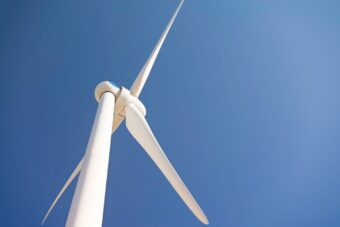The energy transition in the Western Balkans is taking place gradually. The use of renewable energy sources is constantly increasing and governments are investing efforts in adopting regulations. This can be considered an achievement for a region that has relied on coal for decades. However, it is necessary to do more and at a faster pace, especially when it comes to progress in achieving the goals of the EU Green Agenda.
This is stated in the analysis carried out by Lionel Rapaille, EIB Global Director for Enlargement and EU Neighborhood.
He stated that the switch from coal to renewable sources is still taking place rather slowly because fossil fuels still have a dominant role in energy production (from 41 percent to 95 percent in the structure of electricity sources, depending on the individual country).
“The region is expected to introduce carbon pricing, adopt appropriate regulations, modernize energy infrastructure to increase productivity and reduce losses, as well as implement cost-effective energy pricing and energy efficiency measures. This is not only about compliance with the directives and climate goals of the EU, but also about ensuring a stable and sustainable energy supply in the circumstances of global conflicts, climate change and resource depletion,” the analysis states.
In this context, it is added, targeted support from international partners, such as multilateral development banks, remains the key answer for the need to increase public spending in the energy transition.
It added that EIB Global, as part of the EU climate bank owned by member states, has increased financial and technical support to help the Western Balkans face the challenges of the green transition.

“The Bank supports the construction of new infrastructure for clean energy, such as the wind farm at Vlašić in Bosnia and Herzegovina and the solar power plant near Pristina, as well as the modernization of existing facilities to increase their efficiency, reliability and capacity. This is also the case with the revitalization of hydropower plants in Serbia, as well as the introduction of smart meters in order to optimize consumption, more efficient monitoring and reduce electricity losses,” the analysis adds.
Ultimately, it is emphasized, the involvement of the private sector in the green transition remains the key to its success. Through dedicated credit lines, EIB Global finances energy efficiency and renewable energy projects for small and medium-sized enterprises for the purpose of decarbonizing their operations.
The analysis also points out that, according to the International Energy Agency, almost twice as much is invested in clean energy in the world today (this amount is expected to reach two trillion dollars in 2024) than in fossil fuels (1.2 billion dollars).
Of that, an average of 370 billion dollars is invested in the European Union. Last year, investments in the production of energy from renewable sources in the EU amounted to almost 110 billion dollars, which is an increase of more than six percent compared to the previous year.
The European Investment Bank is participating in this year’s Sarajevo Energy and Climate Week, which takes place from October 23 to 27.
Source: Capital.ba
Source: energetskiportal.rs


